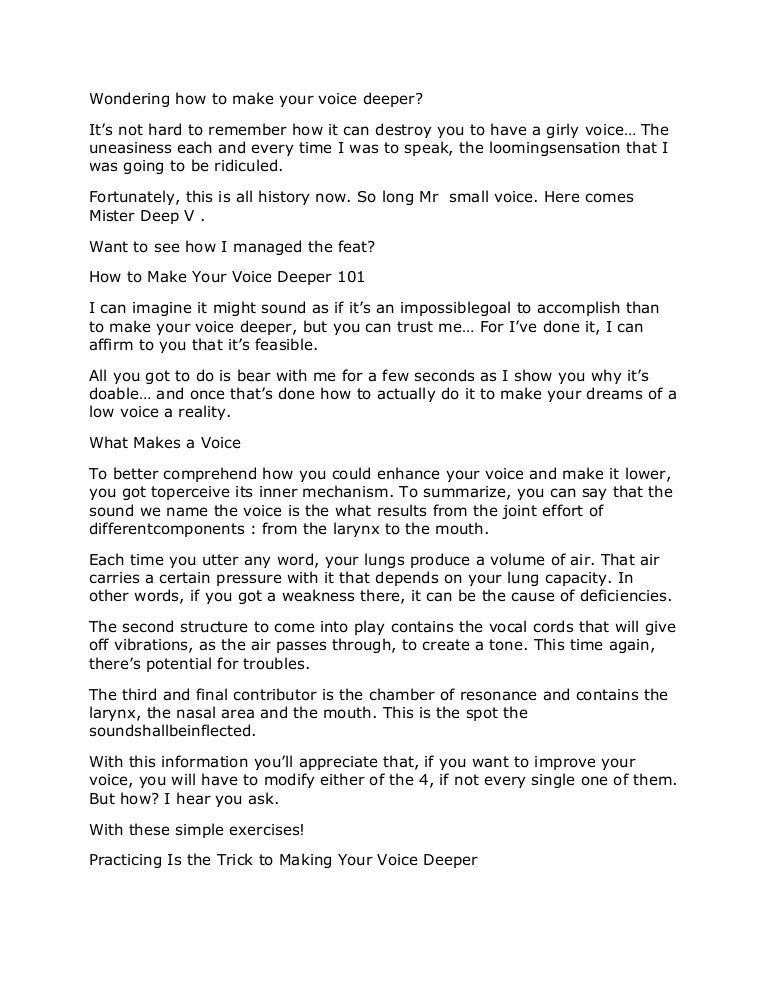



If you take a breath and feel your chest and shoulders rise, you're breathing from your chest, not your diaphragm. Try to breathe in from your diaphragm, rather than taking shallow breaths. It won't make you sound particularly articulate, but if you're feeling especially dysphoric or nervous, it can help you deepen your voice a little bit quite quickly.Įxperiment with your breathing. However, you can achieve a similar effect if you start your sentences with an 'umm', 'uhh', or ‘mm’. Obviously, you can't burst out humming in everyday interaction, so this is something you'll have to practise when you're on your own. Begin speaking directly from your humming voice. You can also try humming deeply from your throat, raising your chin a little, slowly, as you hum. If you like singing, practise singing along to songs with male singers whose voices aren't too deep, and try to match their pitch. If you're not the singing type, a simple exercise you can do is to pick one sound, such as 'ahh', and try raise and lower your voice as much as you can, holding the sound, until you run out of breath. If you sing, you can use very similar exercises to what you use when you're warming up your voice, such as scales. The apps include video-based instruction and practice, different ‘lessons’ such as on breath and pitch, self-guided exercises, visually interactive tools, and a pitch-tuner and tracker tool.įirstly, you might want to do some vocal exercises. There are two versions of the app, ‘Eva FTM’ and ‘Eva MTF’.
VOICE EXERCISES FOR DEEPER VOICE FOR FREE
There’s an app you can download for free called ‘Eva’ which is designed for trans people trying to train their voice. If you’d find it helpful, you can record your voice so that you can hear the changes over time and monitor your progress, which might give you a boost in confidence. It’s a good idea to find someone you can practise with when you first start trying to train your voice, for safety and for conversational practice. While this can be frustrating, it’s better than causing permanent damage to your voice. When you start out, you might only be able to practice for five minutes a day. These methods have been selected because they shouldn’t damage your vocal cords, but if ever you feel like they’re straining your voice or damaging your throat, you should stop immediately. However, none of the suggestions here come from medical professionals. How do I train my voice to be higher or lower?Ĭhanging the pitch of your voice naturally is difficult, and takes a lot of time and practice to achieve noticeable effects, but there are a couple of things you can do to safely train your voice to be lower.


 0 kommentar(er)
0 kommentar(er)
